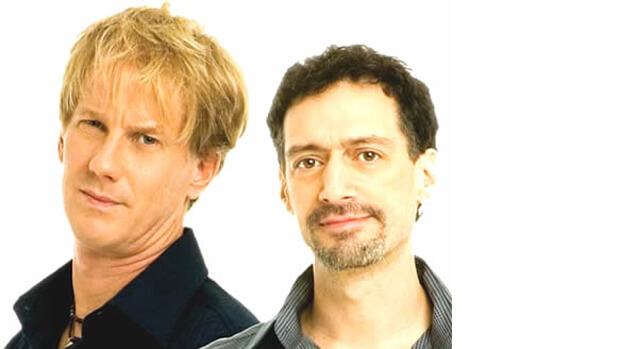Reminder to Idiot Shock Jocks: Internet Speech is the Same as Regular Speech


Image Courtesy Sirius XM
Last Wednesday, Opie & Anthony shock jock Anthony Cumia went on a violent, racist, expletive-filled rant against a black woman who he claims assaulted him as he was taking pictures in Times Square. “If I was an illegal savage I’d have shot her,” Cumia wrote. “I hope she gets killed.”
Cumia deleted the posts, but not quickly enough to prevent various media outlets, including Gawker, from taking note and screengrabing them. On Thursday, SiriusXM fired Cumia, to the host’s apparent bewilderment. “Fired for shit that wasn’t even on air & wasn’t illegal,” Cumia tweeted and then deleted. “So, who’s next?”
Cumia’s bafflement about his firing over comments he made on the Internet points to a realization that is apparently difficult for many social media users to grasp: What you say on the Internet counts just as much as a remark you make on-air. His comments sound like a college kid shocked that his mother saw those unflattering photos of him at a kegger because they were posted on Facebook. Sites like Twitter, Facebook, and Instagram are public spaces. Unless you maintain a private account—and very few celebrities do—the things you say on social media are not passing comments to a group of friends, they are public statements. Anyone can access them. They are fair game for journalists, and they are fair game for employers to scrutinize.
There’s something particularly rich in Cumia’s firing for a string of vile, intentionally controversial tweets, since saying similarly provocative things on the air was his job. You would think that someone whose career is so based on irking people just-so would have been better at recognizing when he has gone too far. (As James Poniewozik aptly pointed out, Cumia’s griping is “like a daredevil blaming the canyon he eventually crashes into.”)
Many people, Cumia included, seem to think that people who take offense at something they say online are somehow intruding on their privacy by reading it at all. See: The ongoing debate over whether journalists need permission to quote your tweets in an article. (Nope.) This notion is something left over from the heady days of the early Internet, where most people interacted anonymously or behind garbled pseudonyms, when the web was, for most people, a bizarre new frontier and a pastime. Now, most of us work and live on the Internet. We use our real names, and real information. Contracts forged through the web aren’t any less binding. Money transferred isn’t any less money. And yet, this idea that communication through the Internet is a second-hand, lower-tier way of saying things persists.
Even the Supreme Court acknowledged the transition of Internet as plaything to Internet as the arena where we live our lives when they determined that police couldn’t search your cell phone without a warrant. Phones no longer just store numbers, they are pocket Internet portals with contact details, banking information, and a whole host of other functions. Similarly, the Internet is no longer just a huge chat room where you can spew bile and expect not to be caught out (though if that’s your bag there are still plenty of places you can do that). Cumia’s mistake was underestimating the way that the media works now.
Fans of Cumia are complaining that the decision to fire the shock jock was censorship, that it violates his First Amendment rights. That’s clearly false. Cumia is allowed to say whatever he wants. He wasn’t jailed for his nasty comments, nor does he face any legal repercussions. In this case, the chant of “First amendment rights” is a fundamental misunderstanding of what those rights afford you. It does not mean that people are required to listen to whatever you say, nor that they are prohibited from reacting to those things, nor that the things you say in public can only be digested by an audience that sympathizes with you.
The comments Cumia made on Twitter weren’t whispered in someone’s ear at the back of a theater, they were shouted at a crowded party. His bafflement and not even being “on-air” while he made those comments betrays ignorance in how this whole Internet thing works: Being on social media is the same as having a hot mic whenever you reach for the keypad. Cumia’s problem isn’t censorship; it’s lack of editing.
You might also like 




















